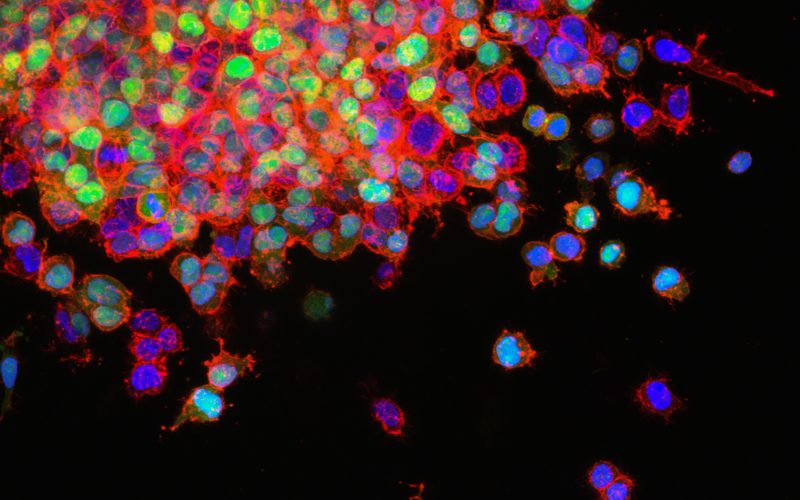Cancer is a heartbreaking diagnosis to receive, but with modern medicine and advancements in technology, there is hope. There have been countless success stories of people who have beaten cancer, and it all starts with the right treatment plan. The range of treatments for cancer patients has grown exponentially in recent years, offering more options than ever before. From immunotherapy to targeted drug therapies and more, these treatments offer the possibility of remission or even a cure. In this article, we will explore the different treatment options available to cancer patients and how they can be used to help beat this terrible disease.
Surgery
There are a variety of different types of surgery that can be used to treat cancer. The type of surgery that is best for a particular patient depends on many factors, including the type and stage of cancer, the patient’s overall health, and the surgeon’s experience and expertise.
Some common types of cancer surgery include:
-Lumpectomy: A lumpectomy is a surgical procedure to remove a breast tumor. It is also called a partial mastectomy. Lumpectomies are often used to treat early-stage breast cancer.
-Mastectomy: A mastectomy is a surgical procedure to remove all of the breast tissue. Mastectomies are often used to treat more advanced stages of breast cancer.
-Prostatectomy: A prostatectomy is a surgical procedure to remove the prostate gland. Prostatectomies are often used to treat early-stage prostate cancer.
-Radiation therapy: Radiation therapy uses high-energy beams, such as X-rays, to kill cancer cells. Radiation therapy can be given externally, from a machine outside the body, or internally, from radioactive material placed directly in or near the tumor.
Chemotherapy
Chemotherapy is a treatment option for cancer patients that uses drugs to kill cancer cells. Chemotherapy can be given intravenously (into a vein), by mouth, or topically (as a cream or ointment). It is typically given in cycles, with each cycle consisting of a period of treatment followed by a period of rest. Chemotherapy is often used in combination with other treatments, such as surgery or radiation therapy.
The side effects of chemotherapy vary depending on the type and dose of drugs used, but may include fatigue, nausea and vomiting, hair loss, mouth sores, and increased risk of infection. Some people experience more severe side effects, such as organ damage or life-threatening allergic reactions.
Chemotherapy is not right for everyone with cancer. Your doctor will consider your overall health, the type and stage of your cancer, and your treatment goals when making a recommendation about whether chemotherapy is right for you.
Radiosurgery
Radiosurgery is a type of cancer treatment that uses high-energy radiation to kill cancer cells. The radiation is delivered directly to the tumor site, and the surrounding healthy tissue is spared. This makes radiosurgery an ideal treatment option for patients with small, localized tumors.
Radiosurgery can be performed as an outpatient procedure, and most patients can go home the same day. The entire treatment usually takes less than an hour, and side effects are typically mild. Recovery times vary depending on the size and location of the tumor, but most patients can expect to return to their normal activities within a few days.
If you have been diagnosed with cancer, head over to Dr. Gil Lederman’s Radiosurgery Cancer Treatment Centre for the best radiosurgery in New York.
Immunotherapy
The use of immunotherapy to treat cancer is a relatively new approach that is showing promise in clinical trials. Immunotherapy works by harnessing the power of the immune system to attack cancer cells. There are several different types of immunotherapy, each with its own unique mechanism of action.
One type of immunotherapy, called checkpoint inhibitor therapy, blocks certain proteins that act as brake pedals on the immune system. This allows the immune system to better recognize and destroy cancer cells. Checkpoint inhibitor therapy is currently approved for the treatment of melanoma and lung cancer, and is being studied in other types of cancer.
Another type of immunotherapy, called adoptive cell therapy, involves taking immune cells from a patient and then modifying them in the laboratory to make them more effective at attacking cancer cells. The modified cells are then injected back into the patient where they can help fight the cancer. Adoptive cell therapy is currently being studied in clinical trials for several different types of cancer.
Immunotherapy is an exciting new area of cancer research with great potential to improve outcomes for patients with this disease.
Targeted Therapy
Targeted therapy is a type of cancer treatment that targets specific molecules or genes that are involved in the growth and spread of cancer cells. This type of therapy can be used to treat a variety of different types of cancer, and it is often used in conjunction with other types of cancer treatment. Targeted therapy is typically less toxic than other types of cancer treatment, and it can be more effective at targeting specific cancer cells.
Clinical Trials
Cancer patients have a wide range of treatment options available to them, and clinical trials are an important part of that. Clinical trials are research studies that test new treatments in people, and they can be an important option for cancer patients.
There are many different types of clinical trials, and they vary in their purpose, duration, and structure. Some clinical trials test new treatments that are not yet available to the public, while others test treatments that are already available but are being studied for a specific cancer or group of cancers. Clinical trials can also be used to test new ways to prevent cancer, screen for cancer, or diagnose cancer.
Clinical trials are conducted by researchers at hospitals, universities, and other institutions. The process of starting a clinical trial is complex, and it can take many years from the time a treatment is first tested in the laboratory to the time it becomes available to patients.
Cancer patients who are considering a clinical trial should talk with their doctor about the risks and benefits of participating in a trial. Each patient’s situation is unique, and clinical trials may not be appropriate for all patients. However, for some patients, clinical trials offer the best chance for effective treatment.
Supportive Care
Cancer patients have a wide range of treatment options available to them, and the best course of action depends on the individual case. However, all cancer patients can benefit from supportive care, which is designed to help manage the symptoms and side effects of cancer and its treatments.
Supportive care can include a variety of different services, such as pain management, nutrition counseling, and psychological support. It is important for cancer patients to work with a team of healthcare professionals who can customize a supportive care plan to meet their individual needs.
Cancer patients often experience a great deal of physical and emotional stress. Supportive care can help them cope with these challenges and improve their quality of life.
How to Choose the Best Treatment Option for You
There are a lot of different treatment options for cancer patients. It can be hard to know which one is best for you. Here are some things to think about when you are choosing a treatment option:
- What is the goal of the treatment?
Are you trying to cure your cancer, or are you trying to manage it and keep it from getting worse? Your answer to this question will help you decide which treatment option is best for you.
- What are the side effects of the treatment?
All treatments have side effects. Some side effects are more serious than others. You need to think about how the side effects of the treatment will affect your quality of life.
- How long will the treatment take?
Some treatments take a long time, and some treatments only last for a short time. You need to think about how much time you are willing to commit to the treatment.
- How much does the treatment cost?
Treatment for cancer can be very expensive. You need to think about whether or not you can afford the treatment.
Conclusion
Cancer treatment is an incredibly complex process and there are many different options available to patients today. From surgery and chemotherapy to radiation therapy, immunotherapy, and targeted therapies, each patient must consider their unique needs before making a decision on which path to take. It can be overwhelming trying to sort through all of the options available but it’s important that you educate yourself on what these treatments involve so that you can make an informed decision about which option might be best for you. Keep in mind that your doctor or health care team will be able to provide advice based on your individual situation so make sure you reach out for help if needed.











